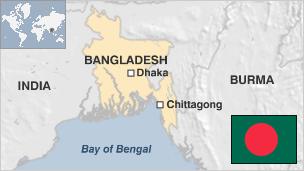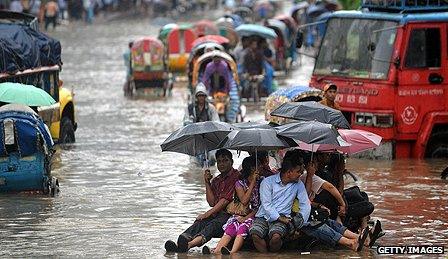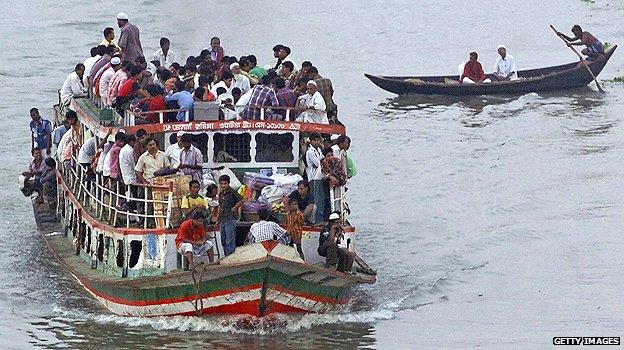Bangladesh profile - Overview
- Published

Bangladesh is one of the world's most densely populated countries, with its people crammed into a delta of rivers that empties into the Bay of Bengal.
Poverty is deep and widespread, but Bangladesh has in recent years reduced population growth and improved health and education.
Some economists see it as one of the "Next Eleven" tier of developing countries with potential for serious foreign-investment-led growth.
The major employer is agriculture, but it is unable to meet the demand for jobs. So, many Bangladeshis - in common with citizens from other countries in the region - seek work abroad, sometimes illegally.
The country is trying to diversify its economy, with industrial development a priority. Overseas investors have pumped money into manufacturing and the energy sector. The collapse of a garment factory in 2013 with the loss of more than 1,000 lives brought workers out onto the streets to demand better conditions.

Much of Bangladesh is low-lying and vulnerable to flooding
Onshore and offshore gas reserves could provide a chance for future prosperity. There has been a debate about whether the reserves should be kept for domestic use or exported. International companies are involved in the gas sector.
Formerly East Pakistan, Bangladesh came into being only in 1971, when the two parts of Pakistan split after a bitter war which drew in neighbouring India.
Bangladesh spent 15 years under military rule and, although democracy was restored in 1990, the political scene remains volatile.
Antagonism between the main parties - the Awami League and Bangladesh Nationalist Party - to a large degree reflects personal animosity between leaders rather than substantial ideological differences.
Most opposition parties boycotted the 2014 elections, and the Bangladesh Nationalist Party is leading a campaign of civil disobedience to have the Awami League government step down in favour of a caretaker administration to hold fresh elections.
Political tensions often spill over into violence, in which hundreds of people have died in recent years.
Islamist extremism has been rising in this traditionally tolerant country. The government is conducting a sustained campaign of arrests against opposition Islamist politicians, many of whom accuse the authorities of using security fears to suppress legitimate opposition and distract attention from the real culprits.
The low-lying country is vulnerable to flooding and cyclones, and stands to be badly affected by any rises in sea levels.

The capital Dhaka is situated on the Ganges Delta and ferries are an important form of transport